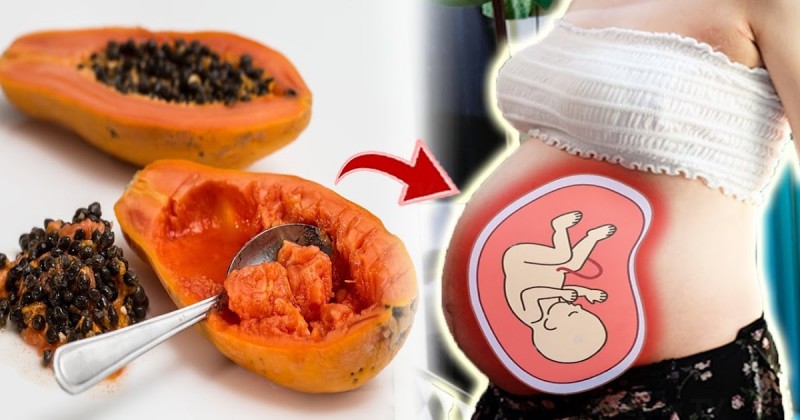
Pregnancy is a beautiful journey, but it often comes with a barrage of myths and old wives' tales. One such myth revolves around the consumption of papaya and pineapple during pregnancy. In this article, we will delve into the reasons why some doctors advise caution when it comes to these tropical fruits.
Papaya is a tropical fruit known for its sweet and vibrant orange flesh. It's a rich source of vitamins, minerals, and dietary fiber, making it a popular choice for health-conscious individuals. However, when it comes to pregnancy, there are concerns about the safety of consuming papaya, particularly in its unripe form.
Papaya contains an enzyme called papain, which is known for its digestive properties. While papain is generally safe for most people, it can pose a potential risk during pregnancy. This is where the cautionary advice from some doctors stems from.
Unripe papaya, in particular, contains higher levels of papain. Consuming unripe papaya during pregnancy may lead to uterine contractions, potentially resulting in a miscarriage or premature birth. This is a cause for concern, and it's why many healthcare professionals err on the side of caution.
It's essential to note that not all forms of papaya are considered dangerous during pregnancy. Ripe papaya, with its sweet and succulent flesh, is generally considered safe for pregnant women. The papain content decreases as the fruit ripens, reducing the associated risks. Therefore, if you are an expectant mother who loves papaya, you can still enjoy it by opting for the ripe variety.
Pineapple, another tropical fruit known for its tangy-sweet flavor, also comes under scrutiny during pregnancy due to the presence of an enzyme called bromelain.
Bromelain is a mixture of enzymes found in pineapple, and it's responsible for its distinctive taste and potential health benefits. However, bromelain can also be a concern during pregnancy.
One of the primary concerns regarding bromelain is its potential to soften the cervix and stimulate uterine contractions. In the early stages of pregnancy, this could lead to complications, such as miscarriage or premature labor.
While it's true that bromelain can pose risks, it's essential to emphasize that eating moderate amounts of fresh, ripe pineapple occasionally is generally considered safe during pregnancy. It's excessive consumption or the use of bromelain supplements that could be problematic. So, if you're craving pineapple, there's no need to completely avoid it, but do exercise moderation.
During pregnancy, it's crucial to seek professional medical advice regarding your diet. Every pregnancy is unique, and individual health factors must be taken into account. Doctors and nutritionists can provide personalized guidance based on your specific circumstances.
A well-balanced diet during pregnancy is crucial for the health of both the mother and the baby. Instead of fixating on specific foods, it's advisable for expectant mothers to focus on a wide variety of fruits and vegetables to ensure they receive all the necessary nutrients. Diversity in your diet can help you avoid potential risks associated with certain foods.
Doctors and healthcare providers play a crucial role in dispelling myths and providing evidence-based information to pregnant women. It's not uncommon for misconceptions about pregnancy nutrition to circulate, and healthcare professionals are there to offer clarity and guidance.
If you are concerned about the risks associated with papaya and pineapple, there are plenty of safe alternatives to satisfy your fruit cravings during pregnancy. Fruits like apples, bananas, pears, and berries are generally well-tolerated and offer a wide range of nutrients that are beneficial for both you and your developing baby.
In conclusion, the caution surrounding the consumption of papaya and pineapple during pregnancy is rooted in the potential risks associated with specific enzymes found in these fruits. While unripe papaya and excessive pineapple consumption can pose concerns, ripe papaya and moderate pineapple intake are generally considered safe. However, it's crucial to emphasize that every pregnancy is unique, and what works for one person may not work for another. The best approach is always to seek professional advice from healthcare providers who can provide tailored guidance based on your individual health circumstances. Pregnancy is a time to prioritize the health and well-being of both the mother and the baby. This includes making informed choices about your diet. By consulting with medical professionals and maintaining a balanced and varied diet, you can navigate the world of pregnancy nutrition with confidence. Remember, myths and misconceptions can abound, but the guidance of healthcare experts remains your most reliable source of information during this exciting journey into motherhood.
'Flash Forward' and Its Transformation into 'Action Replayy'
Indian Railways Unveils Vande Bharat Sleeper Train Set to Redefine Rail Travel